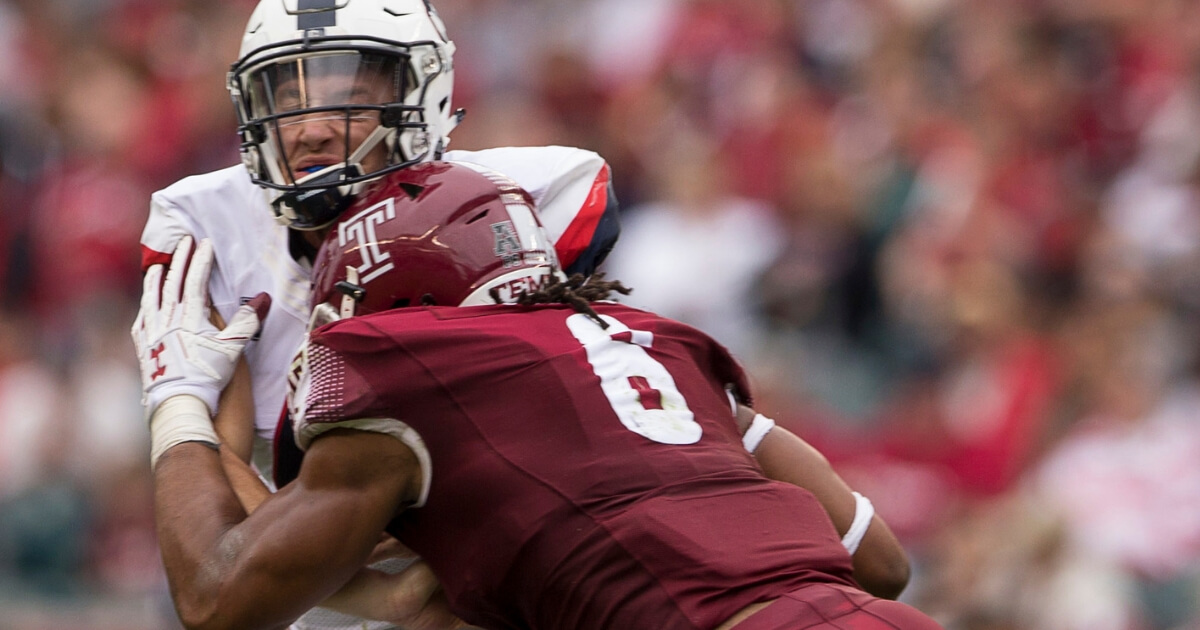
Football Coaches Band Together To Call for 'Targeting' Rule Change
Automatic ejections for targeting could be dropped in some cases as early as next season if an American Football Coaches Association proposal is approved by the NCAA Football Rules Committee.
Few rules have caused as much consternation, frustration and aggravation among coaches, players and fans as targeting, defined as forcible hits above the shoulders of players determined to be defenseless.
The ejection part of the targeting rule is killing college football.
— Brad Clark (@CoachBradClark) December 31, 2018
Coaches are unanimous in wanting to get punishing hits to the head out of the game, but they argue that ejection is too stiff a penalty for players who inadvertently strike an opponent above the shoulders.
AFCA executive director Todd Berry said Wednesday coaches want two degrees of targeting:
• Targeting 1 would carry a 15-yard penalty, meaning there was no malicious intent on the hit.
• Targeting 2 would be for hits with malicious intent and prompt an ejection of the offending player as well as the 15-yard penalty.
The AFCA plans to submit the proposal for consideration when the rules committee meets in February, spokesman Vince Thompson said.
Rogers Redding, the NCAA’s national coordinator of officials, said that because the AFCA proposal concerns player safety, it would go into effect in 2019 if approved. Most other types of rules changes go into effect in even-numbered years under the NCAA’s rules cycle.
The targeting penalty was introduced in 2008 to reduce concussion risk.
Targeting initially was a personal foul, but the penalty has included automatic player ejections since 2013.
Targeting calls are subject to video review and can be overturned.
Would definitely like to see this, particularly with the inconsistency with the refs in these calls.
— canesgirl63 (@llandy420) January 10, 2019
Berry said a player who has multiple Targeting 2 penalties within a season could be more severely punished.
“All of our coaches are in favor of the targeting rule and they recognize the significance of it,” Berry said. “We also recognize that there needs to be more clarification.
“There is going to be subjectivity in the enforcement of this rule, but this can be very costly to the student-athlete who has limited attempts to play this game. For a student-athlete to be ejected from a game for something that many would question to be the correct call can be severe.”
The Western Journal has reviewed this Associated Press story and may have altered it prior to publication to ensure that it meets our editorial standards.
Truth and Accuracy
We are committed to truth and accuracy in all of our journalism. Read our editorial standards.
Advertise with The Western Journal and reach millions of highly engaged readers, while supporting our work. Advertise Today.











